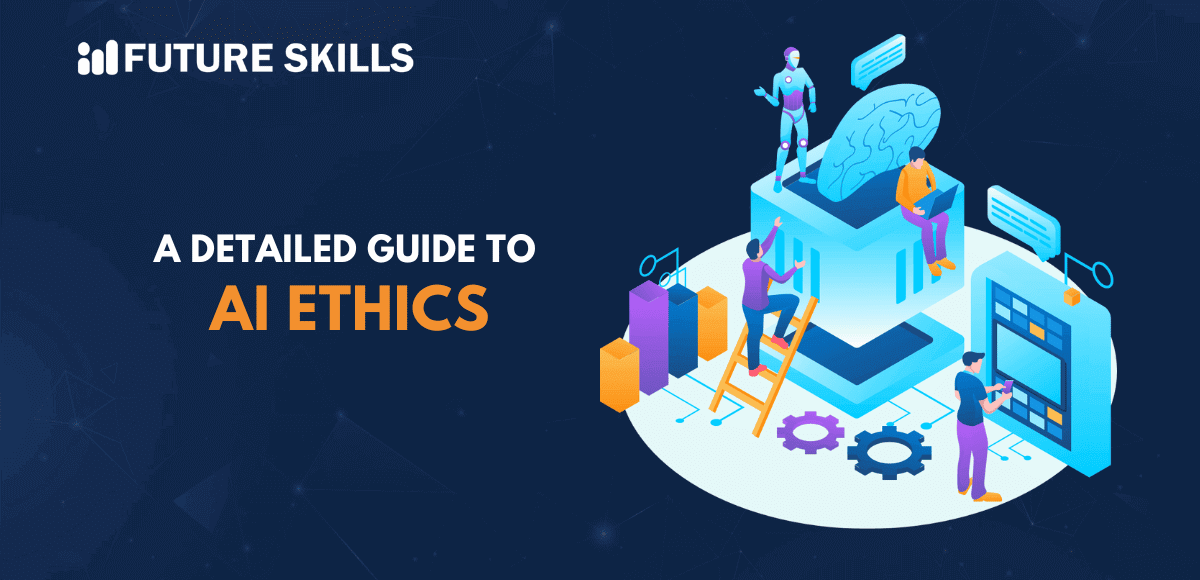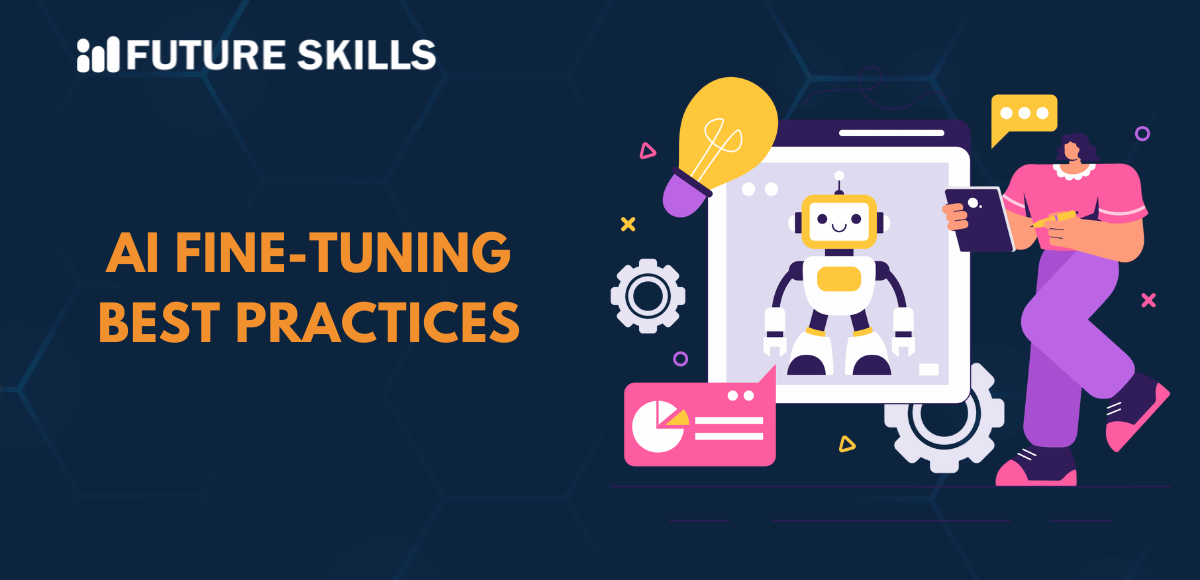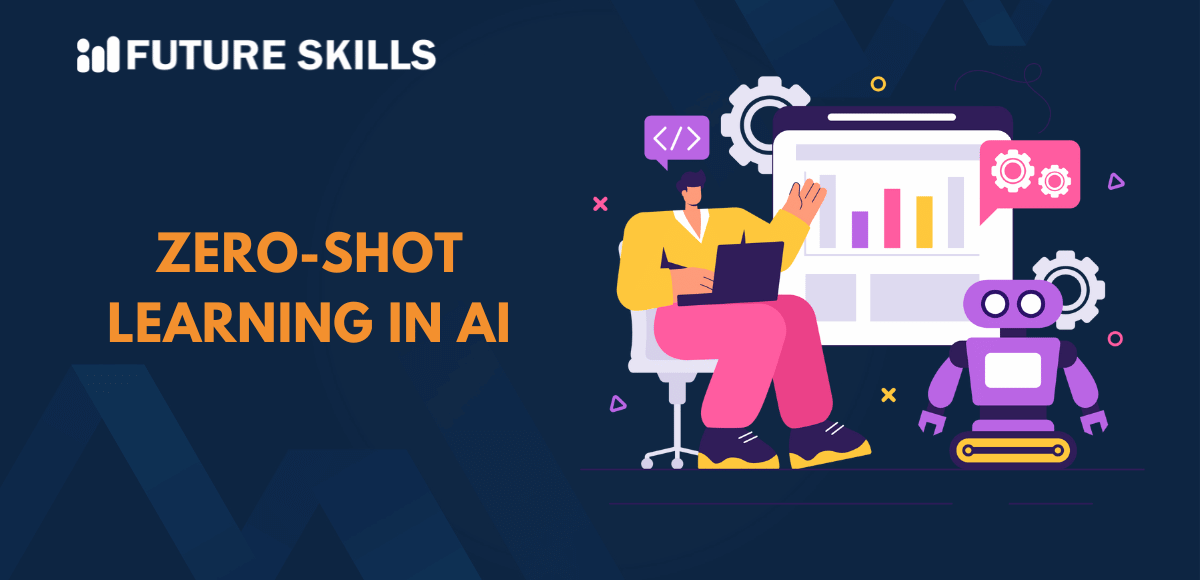The emergence of Artificial Intelligence (AI) technology has automatically created the need to focus on AI Ethics. Since Artificial Intelligence is capable of mimicking human intelligence, the issues that may cloud human judgment may arise, giving rise to ethical concerns. A grave AI ethical concern that was identified by 79 % developers was misinformation and disinformation in AI outcomes.
As the adoption of AI is increasing at a rapid pace, it is essential to understand the relevance of AI ethics. The AI Ethics guide is the perfect tool that will surely broaden your knowledge of AI ethics. Let’s explore the ethical dimension of Artificial Intelligence.
Excited to understand the crucial requirements for developing responsible AI and the implications of privacy and security in AI, Enroll now in the Ethics of Artificial Intelligence (AI) Course.
A Deeper Look at AI Ethics
AI Ethics can be defined as the values and principles that guide the responsible development and application of AI technology. It is essential to prioritize an AI ethics framework since it helps in addressing the moral implications relating to AI. Although AI technology has shown immense potential since its emergence, it has also given rise to several ethical issues that one cannot ignore.
Some of the most common types of ethical issues that exist within the AI domain include data privacy concerns, accountability issues, poor transparency, and algorithmic bias. The adoption of AI ethics principles is vital since it can help address these ethical concerns in an effective manner. One of the most common AI ethics examples includes upholding privacy for users.
Core Pillars of AI Ethics
In order to dive further into the topic of AI Ethics, it is important to address the question: What are the 5 ethics of AI? The core ethical elements in the context of AI are transparency, accountability, fairness, privacy, and explainability. The role of these AI ethics principles is critical to make sure that AI does not give rise to human rights concerns.
-
Transparency
When discussing the topic of AI ethics, transparency is undoubtedly one of the fundamental ethical dimensions that arises. By maintaining transparency, one can understand how Artificial Intelligence systems function. Moreover, it can also help gain a proper insight into how AI systems use data. The role of transparency in AI is a must so that trust can be built among the users of AI technology.
-
Accountability
Accountability is a crucial component of the AI ethics framework. It basically revolves around the obligation that AI developers have to take responsibility for the outcomes generated by AI systems. Thus, developers need to make sure that AI systems not only do not cause any harm to users but also take corrective measures to rectify AI-related concerns.
-
Fairness
Fairness is another vital ethical component that exists in the AI setting. By integrating fairness in Artificial Intelligence systems, one can ensure that issues relating to inequalities and biases do not exist. The role of fairness is essential to promote equity. The developers of AI systems need to be impartial in their approach so that the differences in race, ethnicity, color, etc., will not give rise to discrimination for the users of AI technology.
-
Privacy
A grave ethical concern that arises in the minds of AI users revolves around their privacy. In the realm of Artificial Intelligence, privacy revolves around protecting the data of individuals. By maintaining privacy in the AI landscape, it is possible to make sure that AI systems respect the consent of users and adhere to relevant data protection legislations and requirements.
-
Explainability
While addressing the question – ‘What are the 5 ethics of AI?’ It is a must to focus on the explainability aspect. Users must be able to understand how AI systems make decisions. Thus, appropriate justifications as well as explanations must be made available to the users of AI. The importance of this dimension of AI ethics magnifies, especially in contexts such as business and healthcare. This is because in these settings, the role of AI is pivotal to assist in decision-making.
By prioritizing AI ethics, there is an opportunity to leverage AI optimally and create value for diverse stakeholders. One of the main AI ethics examples involves promoting fairness for the users of AI.
Advance your career with the Certified AI Security Expert (CAISE)™ certification—master LLM security, adversarial machine learning, and advanced AI defense mechanisms to combat real-world AI risks with confidence.
Why is AI Ethics Important?
As the adoption of AI is gaining momentum, it is a must for businesses as well as individuals to understand the importance of AI ethics. The role of AI ethics is indispensable since it can serve as the catalyst and make sure that AI is used in such a manner that it creates value in the social context in a comprehensive manner. You can understand the importance of AI ethics by looking at the following elements presented in the AI Ethics guide:
-
Promotion of human well-being
AI ethics can help prioritize as well as ensure human well-being. By having in place a well-defined ethical framework, the dignity and safety of AI users can be ensured. Individuals can utilize the core capabilities of AI technology without worrying about discrimination or unfairness.
-
Ensuring diversity and inclusivity
The integration of ethical principles into AI is essential so that inclusivity can be ensured. By prioritizing ethics, AI systems can reflect and respect a wide range of human identities, regardless of their differences.
-
Maintaining human control
By integrating ethical elements in the AI domain, it is possible to support human decision-making instead of replacing it. In important areas where AI is adopted, such as healthcare and the military, human beings need to have control over how AI is used so that they can be responsible for the decisions. It can ensure that a sense of accountability exists, utilizing the capabilities of AI technology.
-
Strengthening public interest
By prioritizing the ethical dimension in AI, the trust of the general public in novel technology can definitely increase. As a result, more people will be willing to adopt and accept AI. In fact, the integration of ethical principles is a must to boost the level of transparency and trust.
-
Addressing concerns relating to misinformation
The emergence of AI technology has heightened the issue of misinformation. In order to address this concern, the role of AI ethics is critical. The principles relating to transparency and explainability can ensure that users can understand holistically how AI systems make decisions. Similarly, by adopting an accountable and responsible approach, AI developers can deal with misinformation issues and ensure that AI systems generate accurate results for users.
Become a certified ChatGPT expert and learn how to utilize the potential of ChatGPT that will open new career paths for you. Enroll in Certified ChatGPT Professional (CCGP)™ Certification.
Final Words
Today, human beings have become very dependent on AI technology. It has undoubtedly magnified the relevance of AI ethics. The AI Ethics guide gives a holistic insight into the role of ethics in the AI landscape. By focusing on the ethical principles, there is an opportunity to strengthen the capabilities of AI systems and create benefits for society at a wider level. The chief ethical principles that play a key role in the AI setting are transparency, accountability, fairness, privacy, and explainability.
The relevance of AI ethics is immense, not only for businesses but also for individuals. AI developers need to focus on the core ethical dimensions so that the technology can create benefits for diverse users. In the absence of a robust AI ethical framework, its capabilities and functionalities may be affected. That’s why enrolling in the Ethics of AI course is more important than ever.






